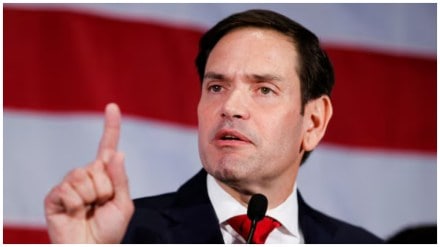With India’s growing influence and Prime Minister Narendra Modi’s recent re-election, the United States Congress has introduced a significant bill favoring India. Proposed by US Congressman Marco Rubio, the ‘US-India Defence Cooperation Act’ seeks to elevate India’s status to that of America’s close allies, including Japan, Israel, South Korea, and NATO members.
Elevating India’s Strategic Status
Congressman Rubio’s bill emphasizes the importance of recognizing India as a strategic ally. It states, “If Pakistan spreads terrorism against India, then security assistance to it should be stopped. Action should be taken against Pakistan.” This reflects a shift in US policy, acknowledging India’s pivotal role in regional stability and counter-terrorism efforts.
Strengthening Military and Diplomatic Ties
The bill proposes that the US should enhance its military cooperation with India, akin to its relationships with Japan, Israel, and South Korea. This includes increasing military aid and sharing critical defence technology. Rubio highlighted the necessity of this partnership to counter China’s growing influence in the Indo-Pacific region. He stated, “Communist China is trying to increase its dominance in the Indo-Pacific region. China also keeps violating the sovereignty of our regional allies. In such a situation, America should help its allies like India to deal with China.”
Addressing Pakistan’s Proxy War
A significant aspect of the bill is its focus on Pakistan. It demands that if Pakistan continues its proxy war against India, the US should halt its economic aid and take action against it. This stance underscores the US’s commitment to supporting India’s security and curbing terrorism in the region.
Exemption for India in Defence Purchases from Russia
One of the notable provisions of the bill is the call for exemptions for India from sanctions under the Countering America’s Adversaries Through Sanctions Act (CAATSA). The bill argues that since the Indian military is heavily reliant on Russian defence equipment, it should receive some leeway in continuing these purchases. This exemption would help India maintain its defence capabilities without facing US sanctions.
Historical Context and India’s Stance on NATO Plus
The concept of granting India a ‘NATO Plus’ status has been discussed before. Last year, the US Parliament’s Select Committee recommended India’s inclusion in NATO Plus, a security system that brings together NATO and five alliance nations (Australia, New Zealand, Japan, Israel, and South Korea) to enhance global defence cooperation. However, India’s Foreign Minister, S Jaishankar, made it clear that India is not keen on joining NATO Plus. India’s strategy has always been to remain non-aligned and not part of any power blocs.
The Nature of NATO Plus
NATO, established in 1949, is a defence alliance comprising 32 countries, including the US, UK, Canada, and France. The NATO Plus framework aims to bolster defence cooperation among its members. Although there is international support for India’s inclusion, India maintains its stance of strategic autonomy, avoiding binding military alliances that might compromise its independent decision-making.
US Perspective on India’s Defence Dependency on Russia
President Joe Biden had previously remarked on India’s defence dependency on Russia, particularly during the Ukraine conflict. Biden suggested that India’s stance on Russia is influenced by its reliance on Russian military supplies. The proposed bill by Rubio, however, seeks to navigate this dependency by advocating for technology transfers and exemptions for India.
Enhancing US-India Partnership
Rubio’s Act aims to strengthen the US-India partnership across multiple dimensions, including defence, civil space, technology, medicine, and economic investments. It proposes that the US should support India in its efforts to secure its land and maritime borders, particularly against Chinese aggression. The Act also calls for a comprehensive review of US aid to Pakistan, ensuring that it does not support terrorism against India.
India’s Growing Defence Imports from the US
In the past decade, India has significantly bolstered its defence capabilities through substantial imports of American platforms, totaling nearly USD 25 billion. This growing defence trade underscores the deepening strategic ties between the two nations and India’s increasing reliance on advanced American military technology.
Bottomline
The ‘US-India Defence Cooperation Act’ marks a significant development in US-India relations. By proposing to treat India as a strategic ally on par with Japan, Israel, South Korea, and NATO members, the bill underscores the importance of India in the global geopolitical landscape. It also highlights the need for a robust partnership to counter common threats, particularly from China and Pakistan. As the bill progresses through the US Congress, it could herald a new era of defence and strategic cooperation between the two largest democracies in the world.
